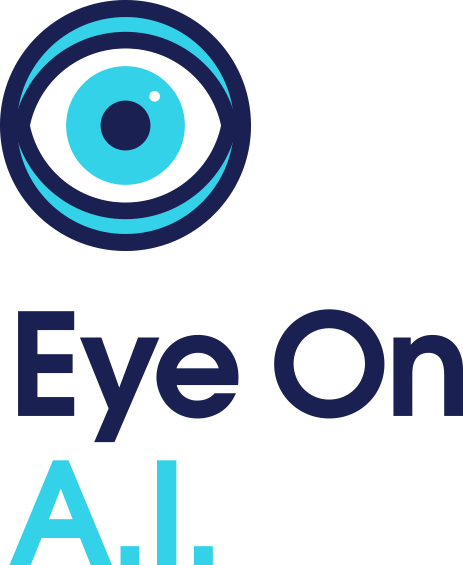Week Ending 11.03.19
RESEARCH WATCH: 11.03.19
Over the past week, 843 new papers were published in "Computer Science".
The paper discussed most in the news over the past week was by a team at Google: "Machine Learning for Scent: Learning Generalizable Perceptual Representations of Small Molecules" by Benjamin Sanchez-Lengeling et al (Oct 2019), which was referenced 25 times, including in the article Can Machines Learn To Smell: Researchers May Have Cracked The Code in Analytics India Magazine. The paper author, Alexander B Wiltschko, was quoted saying "We know we have chiral pairs in our data set, and we know we cannot possibly be predicting them correctly".
Leading researcher Yoshua Bengio (Université de Montréal) published "Small-GAN: Speeding Up GAN Training Using Core-sets", which has 0 shares on Twitter so far.
Over the past week, 70 new papers were published in "Computer Science - Artificial Intelligence".
The paper discussed most in the news over the past week was by a team at IBM: "Evading Real-Time Person Detectors by Adversarial T-shirt" by Kaidi Xu et al (Oct 2019), which was referenced 2 times, including in the article Researchers foil people-detecting AI with an ‘adversarial’ T-shirt in Venturebeat.
Leading researcher Pieter Abbeel (University of California, Berkeley) published "Asynchronous Methods for Model-Based Reinforcement Learning".
Over the past week, 169 new papers were published in "Computer Science - Computer Vision and Pattern Recognition".
The paper discussed most in the news over the past week was "Raiders of the Lost Art" by Anthony Bourached et al (Sep 2019), which was referenced 12 times, including in the article Imagineering & Resurrections in Towards Data Science. The paper got social media traction with 42 shares. A Twitter user, @robertlufkinmd, posted "Beneath Picasso’s blue period The Old Guitarist there is an older painting. Researchers used an technique called neural style transfer to project what the older painting might have looked like in the blue period style of #Picasso. #NeuralNetwork".
Leading researcher Ruslan Salakhutdinov (Carnegie Mellon University) published "Learning Data Manipulation for Augmentation and Weighting".
Over the past week, 20 new papers were published in "Computer Science - Computers and Society".
The paper discussed most in the news over the past week was "Restoring ancient text using deep learning: a case study on Greek epigraphy" by Yannis Assael et al (Oct 2019), which was referenced 19 times, including in the article DeepMind Builds AI To Help Decipher Ancient Greek Engravings in RT Insights. The paper author, Yannis Assael (DeepMind), was quoted saying "It’s all about how we can help the experts".
Over the past week, 19 new papers were published in "Computer Science - Human-Computer Interaction".
The paper discussed most in the news over the past week was by a team at Carnegie Mellon University: "A Robots Expressive Language Affects Human Strategy and Perceptions in a Competitive Game" by Aaron M. Roth et al (Oct 2019), which was referenced 2 times, including in the article Sticks and stones will break your bones but robot taunts will hurt you - in games at least in The Register.
This week was very active for "Computer Science - Learning", with 431 new papers.
The paper discussed most in the news over the past week was by a team at Google: "Machine Learning for Scent: Learning Generalizable Perceptual Representations of Small Molecules" by Benjamin Sanchez-Lengeling et al (Oct 2019)
Leading researcher Yoshua Bengio (Université de Montréal) came out with "Small-GAN: Speeding Up GAN Training Using Core-sets".
Over the past week, 13 new papers were published in "Computer Science - Multiagent Systems".
The paper discussed most in the news over the past week was "Defensive Escort Teams via Multi-Agent Deep Reinforcement Learning" by Arpit Garg et al (Oct 2019), which was referenced 1 time, including in the article A deep learning approach to coordinate defensive escort teams in Tech Xplore. The paper author, Lydia Tapia, was quoted saying "The most meaningful finding of our work was being able to represent the problem in a way that is feasible for the agent to learn a solution that is flexible, even given unexpected circumstances such as agents being removed or added".
Over the past week, 22 new papers were published in "Computer Science - Neural and Evolutionary Computing".
Leading researcher Sergey Levine (University of California, Berkeley) came out with "Entity Abstraction in Visual Model-Based Reinforcement Learning".
This week was active for "Computer Science - Robotics", with 51 new papers.
The paper discussed most in the news over the past week was by a team at Carnegie Mellon University: "A Robots Expressive Language Affects Human Strategy and Perceptions in a Competitive Game" by Aaron M. Roth et al (Oct 2019)
Leading researcher Pieter Abbeel (University of California, Berkeley) came out with "Asynchronous Methods for Model-Based Reinforcement Learning". This paper was also shared the most on social media with zero tweet.

